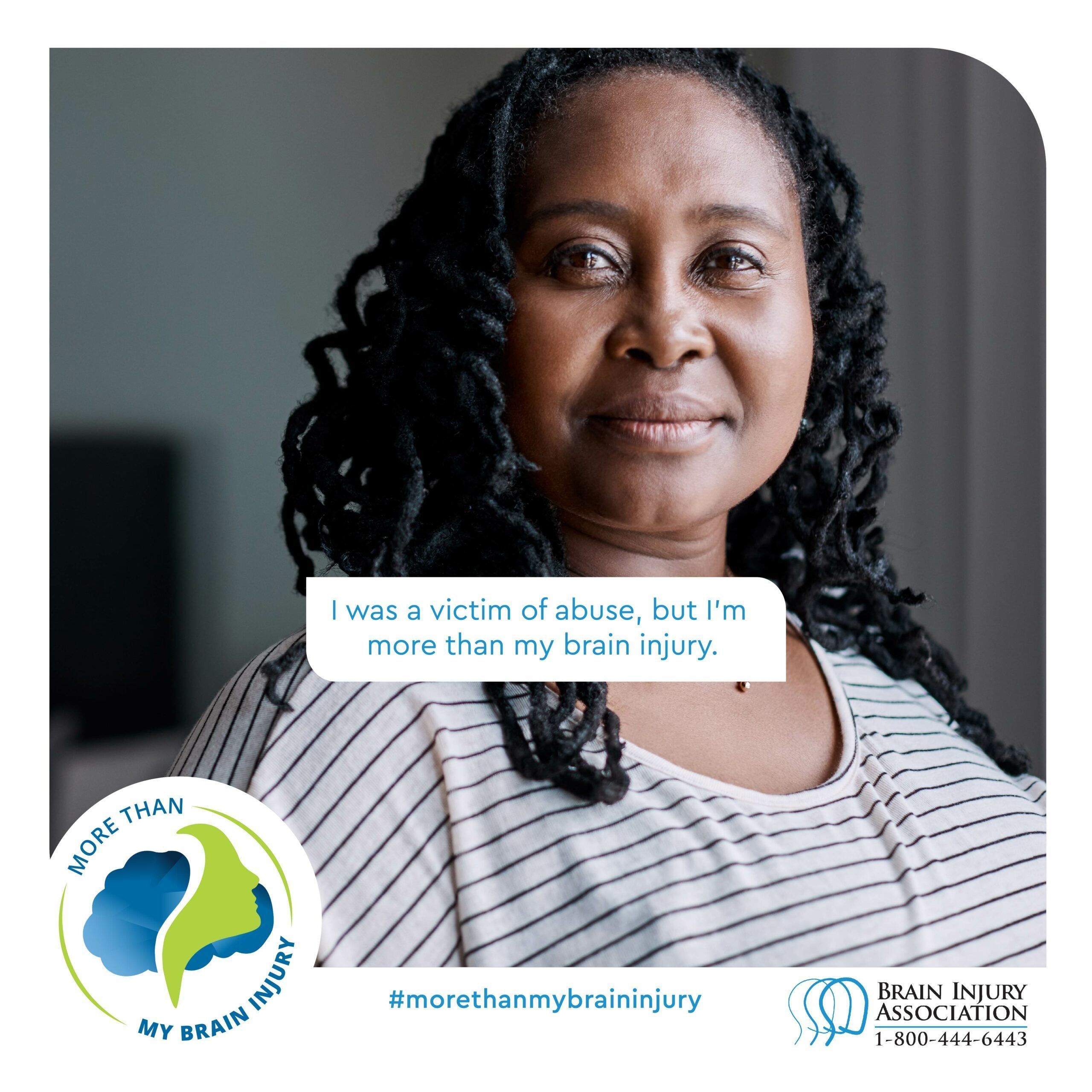
March is National Brain Injury Awareness Month. An estimated 10 million Americans are affected by stroke and Traumatic Brain Injury (TBI), making brain injury the second most prevalent injury and disability in the United States. Symptoms of TBI can be different with each person;, often symptoms are not immediately present or noticeable and can be physical, behavioral, or psycho-social depending on the TBI.
Falls and assaults are two of the leading causes of TBIs. Injuries to the face, head, and neck are among the most common areas of injury for domestic/intimate partner violence survivors. Many are unaware they have suffered a TBI until weeks, months or years later.
This year’s e current theme for Brain Injury Awareness Month is #MoreThanMyBrainInjury. Many people with disabilities have their lives defined for them. The More Than My Brain Injury campaign seeks to give individuals a chance to overcome those definitions, allowing them to tell their own stories and change the narrative of their lives. Click here to access campaign materials.
Go Blue for Brain Injury Awareness Month
During Brain Injury Awareness Month this March, you can Go Blue! for Brain Injury and gather your coworkers and choose a day – or the entire month – for your company to raise money while sharing information and experiences about brain injury. Click here for more information on how to participate.
Resources:
Brain Injury Association of New York State
The Brain Injury Association of New York State (BIANYS) has developed resources for education, rehabilitation, community re-entry, accessibility, and more. Click here to view all available resources from the Brain Injury Association of New York.
BIANYS also operates the Family Helpline, a toll-free information and resource clearinghouse available Monday - Friday, from 8:00 AM to 4:00 PM EDT, with a voicemail system for after-hours messages. Whether you are seeking information on traumatic brain injury, looking for resources on rehabilitation, or just trying to find your way, the Family Helpline is there to help!
BIANYS's knowledgeable staff maintains an extensive directory of services across the State. Call 1-800-444-6443 or send them a message. They have resources for individuals with brain injury, family members, professionals, schools, or any other interested parties.
New York State Coalition Against Domestic Violence
NYSCADV, in collaboration with BIANYS presented a series of regional trainings and webinars on "Domestic Violence & Traumatic Brain Injuries, Understanding the Intersections." This recorded webinar provides advocates with an introduction to tools and strategies to help them navigate the intersections of domestic violence and brain injury with the survivors they work with. Participants are provided with:
- An overview and identification of domestic violence-related brain injury
- Strategies for working with individuals with cognitive deficits
- Community resources for individuals with brain injury
Click here to access the recorded webinar and additional materials.
NYS Office for the Prevention of Domestic Violence
The NYS Office for the Prevention of Domestic Violence has developed resources for Brain Injury and Domestic Violence Service Providers, including screening tools, safety planning guides, victims in a shelter, and information on The Intersections of Brain Injury and Domestic Violence.
New York State Department of Health
The New York State Department of Health has resources available, including background information on types of brain injuries, prevention, medical care, statistical information on the incidences of traumatic brain injury in New York State, including by county, and much more.
Domestic Violence related Brain Injury Resources:
Invisible Injuries: Brain Injuries Caused by Domestic Violence
The Ohio Domestic Violence Network: Center on Partner-Inflicted Brain Injury
Centers for Disease Control and Prevention: Intimate Partner Violence
For Providers: Domestic Violence and Brain Injury in the Era of COVID-19
For Providers: Understanding Domestic Violence as a Cause of TBI
For Providers: It Is Our Responsibility to Recognize Brain Injuries and Intimate Partner Violence in the Women We Serve


